Denmark has long been a favoured destination for international students, offering top-tier education, a welcoming atmosphere, and opportunities for part-time work. However, recent developments have led the Danish government to revise its student visa regulations. These changes, announced by immigration authorities, aim to address the misuse of student visas as a means to enter the Danish labour market. The new policy introduces stricter conditions for non-EU/EEA students and their families, marking a significant shift in how Denmark balances international education and labour concerns
Why Denmark’s Student Visa Rules Have Changed
The changes are driven by increasing reports that some international students, particularly from countries like Nepal, have been enrolling in lower-tier or poorly rated institutions with little intention of pursuing meaningful education, These individuals often use their student status to gain legal entry into Denmark and take on low-wage jobs – commonly in sectors such as:
- Hotel and hospitality services
- Cleaning and janitorial work
- Food preparation and service
- Warehouse and logistics roles
Doing so violates the intended purpose of student visas and is seen as a form of backdoor labour migration, ultimately putting pressure on Danish workers by undercutting wages and weakening labour standards. The government has decided to intervene to protect the job market and ensure student visas are used as intended
What are Denmark’s New Student Visa Rules?
Denmark’s revised student visa policy includes several key changes, each aimed at closing loopholes and reinforcing the educational purpose of student permits.
Elimination of Automatic Work Rights
Previously, non-EU/EEA students were allowed to work a limited number of hours per week alongside their studies. Under the new rules, this right is no longer automatic. Students must now apply for permission to work, and the conditions for approval are expected to be stricter. This change is intended to discourage those who enrol in school solely to access Denmark’s labour market and to encourage students to maintain a strong academic focus.
Work Restrictions for Spouses and Partners
In another significant change, spouses or cohabiting partners of international students will no longer be eligible for a Danish work permit based on the student’s visa. This policy aims to prevent the misuse of student visas as a way to bring in additional labour indirectly through family reunification . Previously, some families used the student visa route as a method to gain collective access to the labour market, a practice that is now being tightly restricted.
Stricter Screening and Oversight
The Danish Immigration Service plans to enhance its screening procedures to identify applicants who may not be genuinely pursuing education. This could include verifying the academic credentials and intentions of the applicant, scrutinising the reputation of the educational institution and monitoring student attendance and academic performance post-arrival
How Denmark’s New Student Visa Rules Will Affect Students
These policy changes will have a noticeable impact on the international student community, especially those from countries with a high number of work-focused applicants. The key implications include:
- Financial Challenges: Many students rely on part-time work to cover living expenses. Without guaranteed work rights, some may struggle financially.
- Reduced Attractiveness of Denmark as a Study Destination: Students seeking a balance between study and part-time employment might now look to countries with more flexible rules.
- Increased Pressure on Institutions: Danish schools will need to ensure they are attracting academically serious students, as failure to do so could impact their standing with immigration authorities.
At the same time, students with a strong academic focus and sufficient financial resources may benefit from a more serious academic environment and reduced competition for jobs.
The Danish Government’s Rationale Behind New Student Visa Rules
The Danish government maintains that the changes are necessary to protect the integrity of its education system and the fairness of its labour market. While acknowledging that some students may face challenges, officials argue that the long-term benefits outweigh the short-term inconveniences.
The primary goals include preserving the quality and reputation of Denmark’s educational institutions, preventing abuse of the visa system and ensuring fair labour conditions for all workers in Denmark. Officials have also emphasised that the changes are not meant to discourage international education altogether, but rather to ensure that those who come to Denmark to study are genuinely committed to learning.
How Danish Students Can Navigate the New Student Visa Rules
For students planning to study in Denmark under the new rules, preparation will be more important than ever. Here are a few tips:
- Budget Carefully: Make sure you have enough savings or financial support to cover your stay without relying heavily on part-time work.
- Choose Accredited Institutions: Enrol in reputable schools that are recognised by Danish authorities to avoid complications with your visa.
- Stay Informed: Regularly check updates from the Danish Immigration Service and your educational institution for policy changes or requirements.
- Demonstrate Academic Intent: Be prepared to show that your primary reason for studying in Denmark is academic, not economic.
Denmark’s decision to tighten student visa rules marks a major step in reshaping its approach to international education and labour policy. While it may create new hurdles for some students, the goal is clear: to ensure that education remains the core reason for granting student visas. By promoting a system that prioritises learning and fairness, Denmark aims to uphold both its academic standards and labour market integrity. Students and institutions must now work together to meet these new expectations and continue building a high-quality, balanced international education environment.
Expanding into Denmark?
Navigating the complexities of Denmark’s Visa rules and regulations can be difficult. Leap29 takes the stress out of expanding into Denmark, with EOR Services, PEO Services, Work Permits and Visas, Entity Set-up, Employment Contracts for Denmark.
To speak to ur team of expansion experts, call us today on +44 (0) 20 8129 6860 or email us at expansion@leap29.com.





